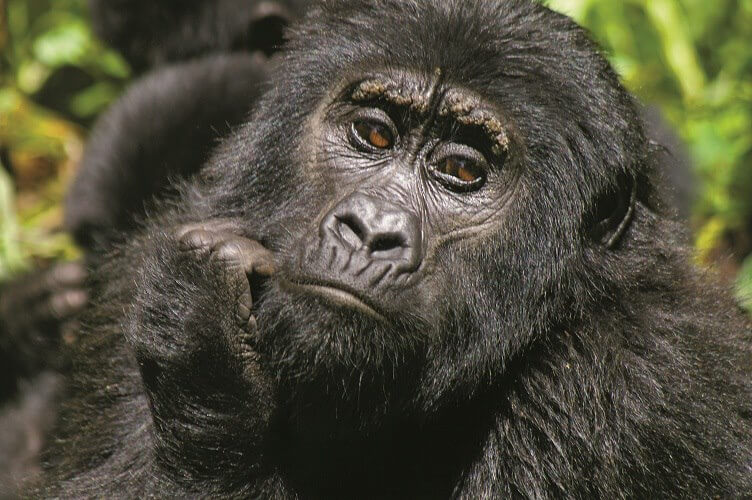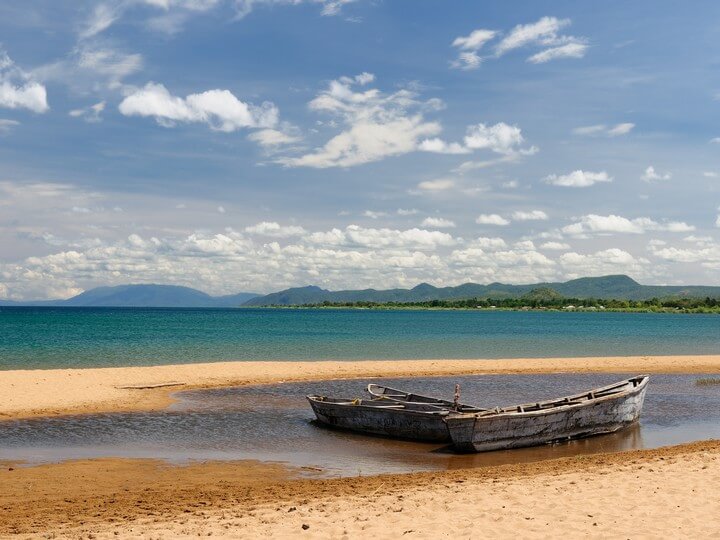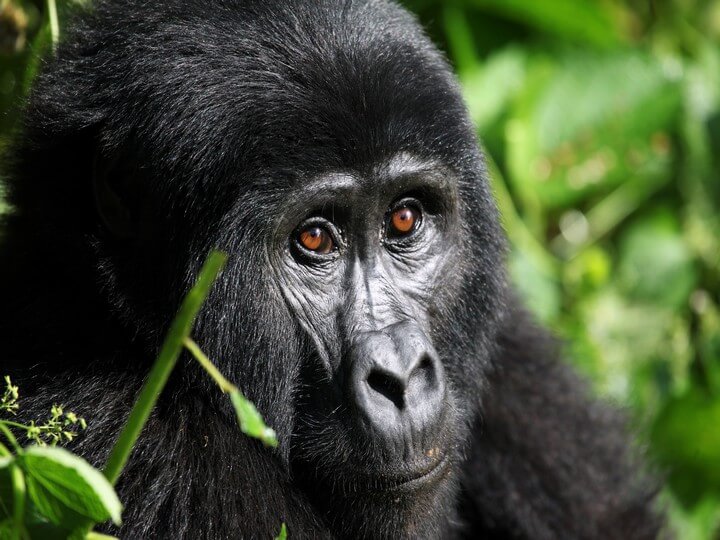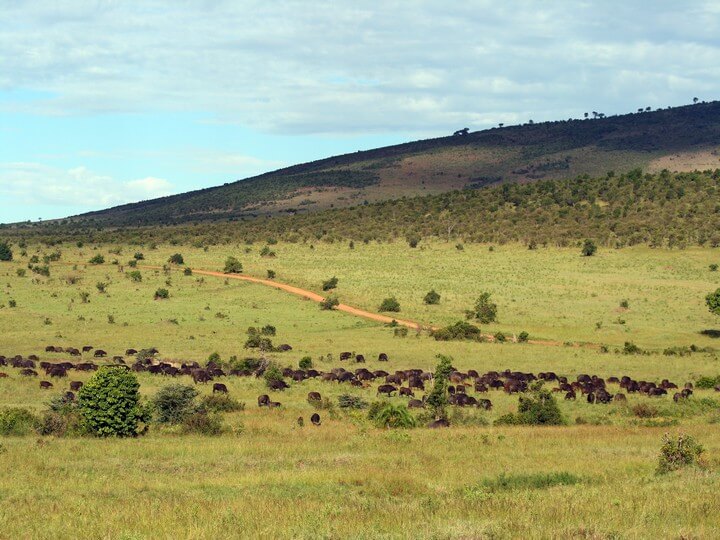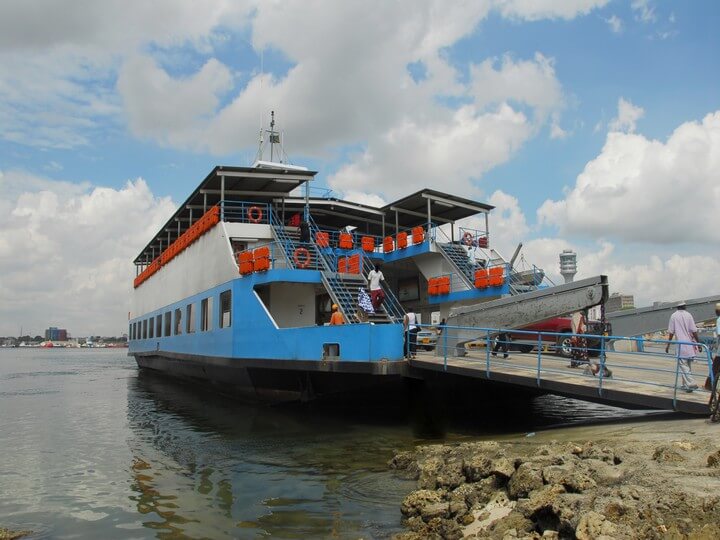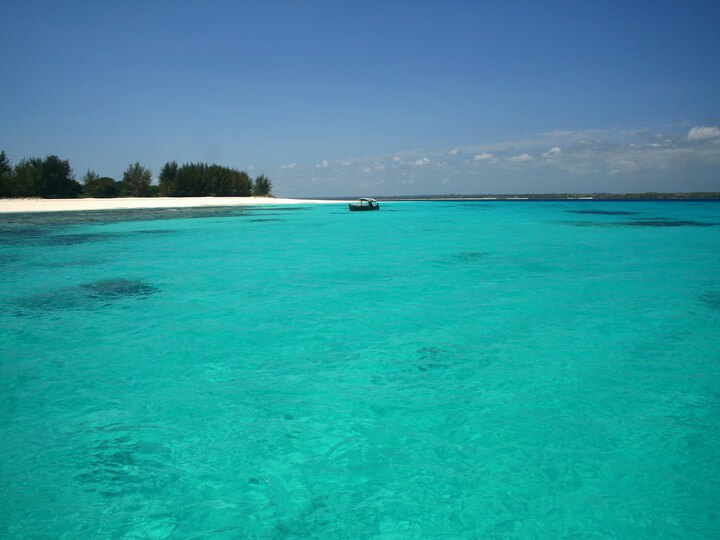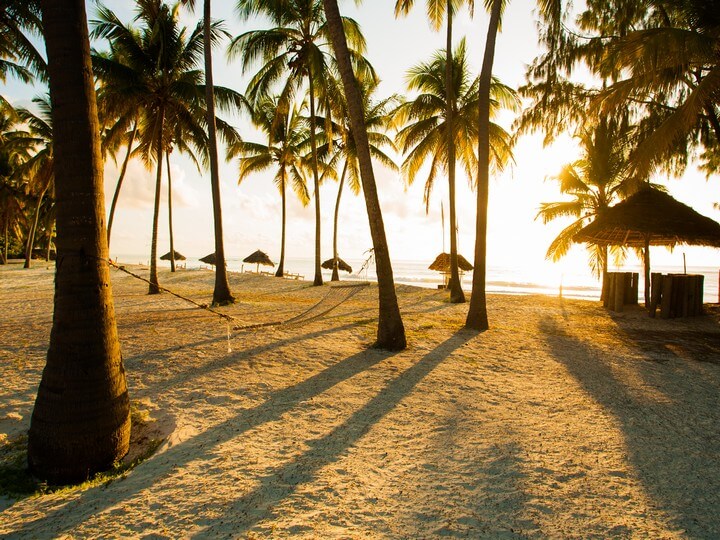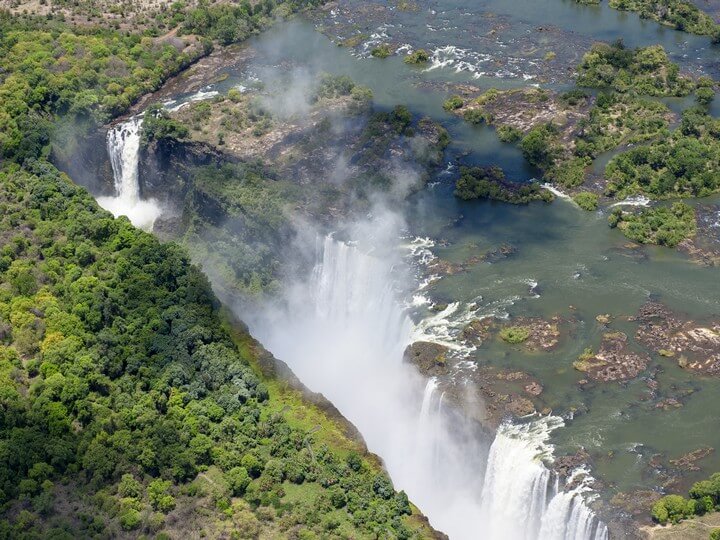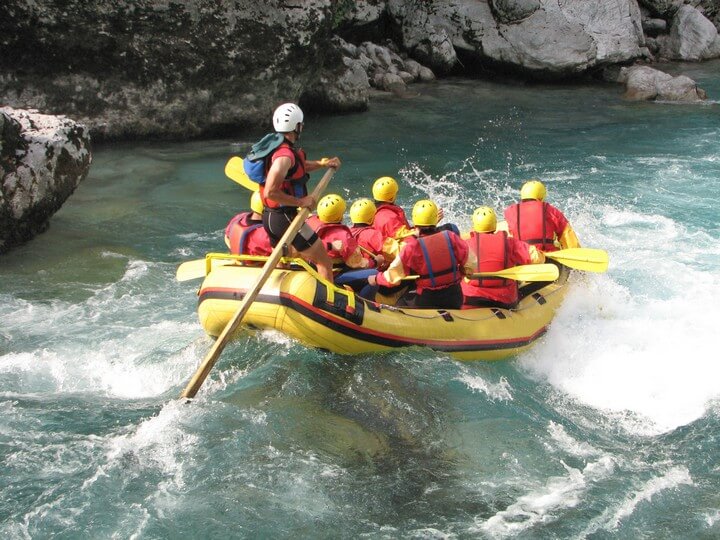| Tour start → end dates | Price | Enquire |
|---|---|---|
| 10 Aug 2024 → 17 Sep 2024 |
From R134190 |
Check Availability |
| 07 Sep 2024 → 15 Oct 2024 |
From R134190 |
Check Availability |
| 05 Oct 2024 → 12 Nov 2024 |
From R134190 |
Check Availability |
| 02 Nov 2024 → 10 Dec 2024 |
From R134190 |
Check Availability |
| 30 Nov 2024 → 07 Jan 2025 |
From R134190 |
Check Availability |
| 28 Dec 2024 → 04 Feb 2025 |
From R134190 |
Check Availability |
| 25 Jan 2025 → 04 Mar 2025 |
From R134190 |
Check Availability |
| 22 Feb 2025 → 01 Apr 2025 |
From R134190 |
Check Availability |
| 22 Mar 2025 → 29 Apr 2025 |
From R134190 |
Check Availability |
| 19 Apr 2025 → 27 May 2025 |
From R134190 |
Check Availability |
| 17 May 2025 → 24 Jun 2025 |
From R134190 |
Check Availability |
| 14 Jun 2025 → 22 Jul 2025 |
From R134190 |
Check Availability |
| 12 Jul 2025 → 19 Aug 2025 |
From R134190 |
Check Availability |
| 09 Aug 2025 → 16 Sep 2025 |
From R134190 |
Check Availability |
| 06 Sep 2025 → 14 Oct 2025 |
From R134190 |
Check Availability |
| 04 Oct 2025 → 11 Nov 2025 |
From R134190 |
Check Availability |
| 01 Nov 2025 → 09 Dec 2025 |
From R134190 |
Check Availability |
| 29 Nov 2025 → 06 Jan 2026 |
From R134190 |
Check Availability |
| 27 Dec 2025 → 03 Feb 2026 |
From R134190 |
Check Availability |
Nairobi to Livingstone Adventure (39 Days)
Tour Details
| Tour Style | Camping |
|---|---|
| Length | 39 days |
| Countries Visited | Uganda, Kenya, Tanzania, Malawi, Zambia |
| Starts | Nairobi |
| Ends | Livingstone |
| Group Size | Max 16 |
| Age Range | 18 years + |
| Tour SKU | CAE2514 |
What You'll Experience
- Great Rift Valley
- Lake Nakuru National Park, Open Vehicle Game Drive with Resident Guide*
- Queen Elizabeth National Park, Chimpanzee Trekking**
- Mountain Gorilla Trekking**
- Maasai Mara Excursion in Purpose Built Safari Vehicles, Game Drives with Resident Guide
- Maasai Village Walk with Resident Guide
- Serengeti & Ngorongoro Crater Excursion in Purpose Built Safari Vehicles, Game Drives with Resident Guide*
- Zanzibar, Return Ferry & Accommodation
- Mosi Oa Tunya National Park
- Victoria Falls Visit
Why You'll Love this Tour
This Nairobi to Livingstone Overland tour provides a comprehensive insight into East Africa’s finest highlights and gives you a glimpse of what Southern Africa has to offer. We go primate trekking in Uganda and explore the rippling Masai Mara and flat plains of the Serengeti. See the monumental Ngorongoro Crater and the magnificence of Mt Kilimanjaro. Relax on the sun-kissed beaches on the tropical island of Zanzibar, view the picturesque Lake Malawi and the powerful Victoria Falls.
Tour Price
FROM
R134,190
+ Activity Package (Compulsory) USD 1025
+ Optional Gorilla Trekking 14920 (1 Jan 24 - 30 Jun 24) - 17770 (1 Jul 24 - 31 Dec 24)
Dates Tour Length: 39 days
Included
- Meals - 38 Breakfasts, 31 Lunches, 31 Dinners
- Accommodation - Two person dome tents (33 nights), Pre-erected tent with en suite (2 nights), Hotel (3 nights)
- Fully equipped safari vehicle
- Camping and cooking equipment
- All road tolls and vehicle taxes
- All ground transportation
- Services of two crew
- Sleeping mattress
- Great Rift Valley
- Maasai Mara Excursion in Purpose Built Safari Vehicles, Game Drives with Resident Guide
- Maasai Village Walk with Resident Guide
- Zanzibar, Return Ferry & Accommodation
- Mosi Oa Tunya National Park
- Victoria Falls Visit
Excluded
- Activity Package
- Gorilla Permit (*Compulsory Activity) ZAR 14920 (1 Jan 24 - 30 June 24) - ZAR 17770 (1 July 24 - 31 Dec 24)
- Visas
- Travel insurance (Get Adventure Travel Insurance) and medical insurance
- Flights
- Departure taxes
- Airport transfers
- Sleeping bag
- Optional activities
- Tips
- Drinks
- Items of a personal nature
- N.B Lunches and dinners in Livingstone, Nairobi and Zanzibar are not included.
Activities
Some of the activities you can take part in on this tour.
- Great Rift Valley
- Maasai Mara Excursion in Purpose Built Safari Vehicles, Game Drives with Resident Guide
- Maasai Village Walk with Resident Guide
- Zanzibar, Return Ferry & Accommodation
- Mosi Oa Tunya National Park
- Victoria Falls Visit
- Lake Nakuru National Park, Open Vehicle Game Drive with Resident Guide*
- Queen Elizabeth National Park, Chimpanzee Trekking**
- Mountain Gorilla Trekking**
- Serengeti & Ngorongoro Crater Excursion in Purpose Built Safari Vehicles, Game Drives with Resident Guide*
Other Activities
Uganda Lake Bunyonyi
- Boating on the Lake (islands) $25 - $80
- Village Walk/Nature Walk $10
- Traditional Dance $100
- Bird Watching $15
- Canoe Hire $10
- Quad Biking $85
- Nile sup From $20
- Nile Cruise From $25
- Fishing Trips From $80
- Kayak From $20
- Mountain biking From $30
- White Water Rafting $160
- Community Schools Project $50
- Daphne Sheldrick Elephant orphanage $10
- Giraffe Centre $10
- Karen Blixen Museum $20
- Camel Ride $5
- Massages – on the beach From $20
- Yacht Trips (Snorkeling and sunset) $120
- Snorkelling Day Trip $40
- Zanzibar Food (per day) $30 - $35
- Spice Tour $35
- Scuba Dive – local $150
- Slave Markets $15
- Arabic Fort $5
- Palace Museum $10
- Horse Riding $55
- Village Walk $10
- Livingstonia Day Hike $10
- Snorkelling Day Trips From $15
- Fresh Water Scuba Dives From $45
- Canoe Hire From $15
- Vic Falls Bungee (single/tandem) $160
- Mosi Oa Tunya National Park Game Walk $110
- Chief Mikumi Village Tour $50
- Gorge Swing $95
- Zambezi Jet Boating & Cable Car From $215
- Half Day Canoe Safari $115
- Zambezi Sunset Cruise $70
- White-water Rafting – Full Day $180
- Helicopter/Microlight Flight over the Falls From $195
- Fishing – Half Day $145
- Full Day Abseil $190
- Bridge Tour $65
Itinerary
Day 1
Nairobi – Lake Nakuru National Park, Kenya
Kenya, being East Africa’s most popular safari destination, warmly welcomes visitors to their beautiful country. The Kenyan capital of Nairobi has grown vastly in recent years, but still maintains a relatively small city centre and a city market that has much to offer. It is recommended that you arrive at least a day before departure in order for you to recover from any jet lag and have time to relax and maybe have a chance to see the city.
Departing from the gorgeous Nairobi in the morning hours, we begin our descent into ‘the Great Rift Valley’, a gigantic cleft in the Earth’s surface that stretches from the Red Sea all the way to Madagascar. On the way, we stop at a specific lookout point to drink in the majestic views provided to us by the African landscape.
The overnight stop we take is close to Lake Nakuru National Park, abundant in fauna and flora on the floor of the Great Rift Valley. The shallow soda lake within the park is home to a wide variety of extraordinary birdlife, specifically flamingos (attracted by the abundance of algae in the lake) that, when gathered in their massive numbers, form a dazzling pink ‘fringe’ around the edges of the water. This splendid lake also attracts wildlife such as buffalo, lion, black and white rhinoceros, leopard, warthog, baboon, antelope and a large assortment of smaller animals too. We then embark on an afternoon game drive searching for more elusive and diverse wildlife, led by local guides and smaller safari vehicles in order to obtain a more intimate experience with African nature.
Trip Highlights: Lake Nakuru National Park, Great Rift Valley view
Accommodation: Punda Milias Camp – Camping in twin share tents with shared facilities
Meals Included: Lunch, Dinner
Distance Covered: +/- 190kms
Approximate Driving Time: 4 hours
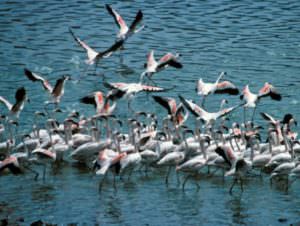
Day 2
Lake Nakuru – Eldoret, Kenya
From Nakuru we continue northwest, through the highlands, towards the town of Eldoret which is en route to the Ugandan frontier. We will cross from the Southern to the Northern hemisphere, over the Equator where we spend some time learning about the significance of the crossing. We stop to rest and give photographers a chance to capture this beautiful part of their trip. We then head to Eldoret, the town’s name originates from the Maasai word Eldore meaning ‘stony river’ inspired by the stony bed of the nearby Sosiani River. The town is the 5th largest in Kenya with the fastest growing population of approximately 194,000.
We stay outside of town in a unique area created on hilly forest tribal land, once home to members of the ancient Sirikwa tribe. Preserved on the site are excavations with stone sides, commonly called Sirikwa holes, which are believed to have been roofed and occupied by the inhabitants of a bygone age.
Trip Highlights: Equator crossing
Accommodation: Naiberi Overland Camp – Camping in twin share tents with shared facilities
Meals included: Breakfast, Lunch, Dinner
Distance Covered: +/- 150kms
Approximate Driving Time: 3.5 hours
Day 3
Eldoret – Kampala, Uganda
Today we make the cross into Uganda – a country that is a rich painting brought to life. With its breathtaking natural scenery and vibrant collection of tribes and cultures, it’s no wonder it was termed by Winston Churchill as the ‘Pearl of Africa’. The locals are warm and friendly people and the landscape is overwhelmingly beautiful.
Our first night is spent camping in Uganda’s attractive and hilly capital, Kampala. Here you will find bustling roadside traders, quaint local markets and busy matutu (mini-bus taxi) stands.
Trip Highlights: Kampala
Accommodation: Red Chilli Camp – Camping in twin share tents with shared facilities
Meals included: Breakfast, Lunch, Dinner
Wi-Fi: Yes
Distance Covered: +/- 400kms
Approximate Driving Time: 7.5 hours
Day 4
Kampala – Queen Elizabeth National Park, Uganda
Leaving Kampala, we travel to Queen Elizabeth National Park, where we once again cross the Equator. Along the way you can expect to see lush green hillsides, flourishing banana plantations, steep mountains and dense forests along with herds of Ankole cattle boasting astonishingly long and curving horns that roam the roads and paddocks freely.
The area in which we stay is a short distance away from the Queen Elizabeth National Park, where you will have some leisure time and perhaps you can take a walk in the surrounding areas or mingle with the local community.
Trip Highlights: Equator crossing
Accommodation: Simba Camp – Camping in twin share tents with shared facilities
Meals included: Breakfast, Lunch, Dinner
Wi-Fi: Yes
Distance Covered: +/- 240ms
Approximate Driving Time: 5 hours
Day 5
Queen Elizabeth National Park, Uganda
In the morning we enter the Queen Elizabeth National Park where we take in awe-inspiring views of the mountains that separate Uganda from Central Africa as well as Lake Edwards and Lake George. The Queen Elizabeth National Park boasts over 500 bird species and 100 mammal species, making it one of the most bio diverse national parks in the world.
Close to the park, we visit the Kyambura Gorge to begin our trek to seek out the chimpanzees. Unlike their bigger cousins, the mountain gorilla, chimps live predominantly in the trees. The experience of seeing these beautiful creatures in their natural habitat is incredible. We spend another night at the Simba Camp before making our way to Lake Bunyonyi.
PLEASE NOTE: Trekking permits will be issued by the wildlife authority in groups of up to 8 people per group. Depending on our group size, the trek may be spread over three days.
Trip Highlights: Queen Elizabeth National Park entrance and Game Drive
Accommodation: Simba Camp – Camping in twin share tents with shared facilities
Meals included: Breakfast, Lunch, Dinner
Wi-Fi: Yes
Day 6 - 8
Queen Elizabeth National Park – Lake Bunyonyi rest days or Gorilla trek day, Uganda
Our next destination is Lake Bunyonyi (‘Place of many little birds’). This lake is 900 metres deep and is the second deepest lake in Africa. When we are not trekking to see the mountain gorillas, there are 29 islands that can be explored by boat where you can spend the time at your leisure. You will be split into groups over the next three days, while each group takes turns trekking to see the gorillas while the rest explore Lake Bunyonyi.
Lake Bunyonyi
You will have time to hire canoes and row on the lake, visit some of the local tribes or spend some time with the children in the orphanages. There is also plenty of bird watching and walks that you can partake in. Or you may choose to sit back and relax.
Mountain Gorilla Trekking
Only 700 gorillas remain in this region of Africa, mostly within the Bwindi Impenetrable National Park. (Occasionally we may travel to Rwanda to spot the gorillas.)
On the day of the trek, the group gathers early in the morning to be introduced to our local guide and tracker. Following this, we walk in small groups, trekking through the lush rainforest. This journey can be physically demanding at times due to the uneven terrain and the hilly forest itself, but the privilege of spending quality time with a family of these gentle and peaceful primates definitely makes the effort worthwhile. Even to people who live permanently in this area, this trek and encounter with the gorillas has proven to be one of the most exciting wildlife experiences in Africa.
The usual protocol once our group has located a gorilla family is to sit down and simply observe the magnificent creatures for about an hour, which is the time set strictly by the Uganda Wildlife Authority. Gorillas are rather sociable, living in groups of between 12 and 20, each usually led by the alpha male – the ‘silverback’, named so due to the silver hair on his back that begins to grow once the male gorilla reaches maturity. You will find that the gorillas and their tendencies are remarkably human-like, especially in the social interaction that takes place between the gorilla family members and their play time, in which their children are encouraged to engage. Photographers may take as many photographs as they like, but are under strict instructions not to use any flashes. There are also certain restrictions to those who wish to use a video camera.
Your permit allows for one trek and gorilla viewing with your time limited to one hour. However, because the authorities maintain strict limits on the amount of visitors permitted to view the animals each day, we may spend several days in the area so as to allow for all members of the tour to complete their trek and viewing.
PLEASE NOTE: Depending on the availability of the gorilla permits the tour itinerary may vary in day to day running order which is based on the brochure itinerary. From time to time we may have to trek on different days. If at any reason our Gorilla trek should be in another neighbouring country, e.g. Rwanda (instead of Uganda) this may entail extra visa fees although we shall endeavour to advise you before departure of any significant changes to the tour itinerary. Please take the above itinerary as a guideline only. This applies to day 6 – 8 of this tour.
For those not trekking, the day is free to explore the surroundings or unwind and catch up on some well deserved rest and relaxation. On the last day in Lake Bunyonyi you could participate in a day of trekking or you could take part in the many optional activities on offer here.
Trip Highlights: Gorilla Trek, Lake Bunyonyi
Accommodation: Lake Bunyonyi Overland Stop, Gorilla Trek area, camping in twin share tents with shared facilities
Meals included: Breakfast x3, Lunch x3, Dinner x3
Wi-Fi: Yes
Distance Covered: +/-240kms
Approximate Driving Time: 5 hours, Trekking for gorillas or rest days
Optional Activities: Island boat trips US$25 – US$80, Village Walk US$10, Traditional Dance US$100, Bird watching US$15, Canoe hire US$10
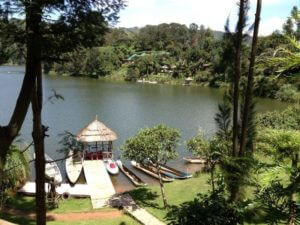
Day 9
Lake Bunyonyi – Kampala, Uganda
We leave Lake Bunyonyi and make our way back across the Equator, stopping for photograph opportunities if we did not have any en route to Queen Elizabeth National Park. We pass lush pastures and the northern reaches of Lake Victoria, which is the largest lake in Africa, all en route to Uganda’s capital, Kampala, where we will be spending the night. Kampala is known for its great food and entertainment and, if time allows, you are welcome to take the night out and try the local cuisine as well as enjoy the hospitality and friendliness of the locals.
Trip Highlights: Equator crossing, Kampala
Accommodation: Red Chilli Camp – Camping in twin share tents with shared facilities
Meals included: Breakfast, Lunch, Dinner
Wi-Fi: Yes
Distance Covered: +/-550kms
Approximate Driving Time: 10 hours
Day 10 - 12
Kampala – Jinja, Uganda
We leave Kampala and drive a short distance to Jinja, situated on the fresh, grassy banks of the longest river in the world, the River Nile. British explorer John Hanning Speke first recognised Lake Victoria as ‘the source of the Nile’ in 1862, settling a long running debate about Africa’s (and the world’s) longest river. From Lake Victoria, the Nile begins its 4132 mile course through Uganda, Sudan and eventually Egypt, leading to the Mediterranean Sea.
Our campsite is on the banks overlooking the Nile River where we will have the opportunity to try our hands at the art of rafting. This is definitely an exhilarating day for any adventure-seeker. In the Jinja area, you will also have the chance to roll up your sleeves and make a difference at a local children’s school project – Softpower. This project is a locally run voluntary programme that aims at constructing and improving schools in the Jinja area. Any contribution from you, even just a few hours of painting or plastering, is always welcome and appreciated. Other activities that you can take part in during your stay in Jinja include mountain biking, quad biking, village walks and for the adrenaline junkies, even bungee jumping!
The following two days you are free to explore this beautiful area or participate in the many optional activities on offer. For those seeking a more relaxed day, taking time to visit the local community or spend your time relaxing. You can spend the day on the banks of the Nile learning about the community, the town of Jinja, enjoy the stunning views of the river or participate in the variety of activities on offer here.
Trip Highlights: Jinja, Source of the Nile, Optional activities
Accommodation: Nile River Explorers – Camping in twin share tents with shared facilities
Meals included: Breakfast x 3, Lunch x 3, Dinner x 3
Wi-Fi: Yes
Distance Covered: +/-80kms
Approximate Driving Time: 1.5 hours
Optional Activities: Quad Biking US$85, White-water Rafting US$160, Community School Project US$50, Nile Cruise from US$25, Nile SUP from US$20, Kayak from US$20, Fishing Trips from US$80, Mountain Biking from US$30
Day 13
Jinja – Eldoret, Kenya
Following our refreshing stop at Jinja, we head back across the border to the frontier of Kenya and onto the town in which we will be camping for the night – Eldoret. The evening is dedicated to celebration with your fellow adventurers where everyone is encouraged to share their favourite experiences and stories around the campfire.
Trip Highlights: Eldoret
Accommodation: Naiberi Overland Camp – Camping in twin share tents with shared facilities
Meals included: Breakfast, Lunch, Dinner
Wi-Fi: No
Distance Covered: +/-300kms
Approximate Driving Time: 6 hours
Day 14 -15
Eldoret – Nairobi, Kenya
Today we cross the Equator once more and make our way South, towards our base just outside of the Kenyan capital, Nairobi. The next day is for relaxing day and you are free to explore the city and surrounding areas. Our tour leader will be able to help arrange local optional excursions for you.
Trip Highlights: Equator, Nairobi, Optional Activities
Accommodation: Karen Camp – Camping in twin share tents with shared facilities
Meals included: Breakfast x2
Wi-Fi: Yes
Distance Covered: +/-250kms
Approximate Driving Time: 4 hours
Optional Activities: Daphne Sheldrick Elephant Orphanage US$10, Giraffe Centre US$10, Karen Blixen Museum US$20
Day 16 - 18
Nairobi – Masai Mara Reserve, Kenya – Nairobi, Kenya
Departing the city early in the morning, we travel back across the Great Rift Valley, this time to the Masai Mara National Reserve, enjoying the splendid views on the way. We travel in small, specialized vehicles, enabling us to have much more intimate wildlife views. Two nights will be spent camping on the edge of the Reserve, giving you time to explore the park on morning and afternoon game drives. The magnificent continent of Africa is represented extremely well by the vast, sweeping plains, the low hanging acacia trees, the abundant fauna and flora and the awe-inspiring view of the horizon.
The ‘Mara’ is crossed each year between the months of July and October by massive herds of wildebeest, zebra and other grazing animals during their migration from the adjoining Serengeti plains toward the southern Tanzania. The length of the animals’ stay is dependent on rainfall and subsequent grass growth throughout the rainy season. Predators, such as lion, cheetah and leopard as well as scavengers, such as hyena and vultures, shadow the grazing animals in wait. This enormously spectacular congregation of wildlife forms a fantastic display of Africa’s natural resources and inhabitants. This being said, however, the Mara is still excellent for game viewing at most any time of year and, regardless of when you can visit, we aim to see as many of Africa’s ‘Big Five’ as possible (elephant, lion, rhino, buffalo and leopard) as well as an array of other wildlife.
It is from the Mara that we return to Nairobi where we will usually camp overnight.
Trip Highlights: Great Rift Valley, Masai Mara Game Reserve, Game drives
Accommodation: Masai Mara – Chronicle Tented Camp, Nairobi – Karen Camp
Meals included: Breakfast x 3, Lunch x 3, Dinner x 3
Distance Covered: +/-300kms (first day), +/-300kms (third day)
Approximate Driving Time: 5 hours (first day), Full days including game drives (second day), 5 hours (third day)
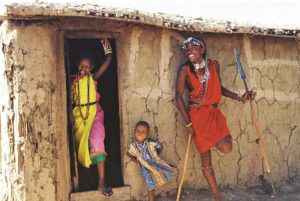
Day 19
Nairobi – Arusha, Tanzania
At the busy Namanga frontier, we cross the border into Tanzania and in the late afternoon we arrive at Arusha. Located mid-way between Cape Town and Cairo, Arusha is very much Tanzania’s ‘safari capital’. It is a bustling city with colourful and vibrant markets, shops, vehicles and people, all nestled in the shadow of the towering Mt Meru, a sacred mountain (visible from Mt Kilimanjaro) that is considered to be the centre of all the physical, metaphysical and spiritual universes, reaching 4,565 metres in height.
After we’ve had a chance to explore the curio markets, we make our way to our camp situated just outside of Arusha, on the open plains to the west of the city. From here, we prepare for our two night/three day expedition to the Serengeti National Park and the Ngorongoro Crater that was formed when a massive volcano exploded and collapsed in on itself some two or three million years ago. There will also be an Optional Activity and Excursion in which you can partake. Your tour leader will offer these extras to all on the tour as well as take payment for them.
If there is time this afternoon, we embark on a walk to a local Maasai village. Here we gain insgiht into their everyday life and traditions.
Trip Highlights: Arusha, Mt Meru, Meserani Snake Park
Accommodation: Meserani Snake Park – Camping in twin share tents with shared facilities
Meals included: Breakfast, Lunch, Dinner
Distance Covered: +/-270kms
Approximate Driving Time: 5 hours
Optional Activities: Camel Ride US$5
Day 20 - 22
Serengeti National Park – Ngorongoro Crater – Arusha, Meserani Snake Park, Tanzania
In the morning we switch to safari vehicles and drive west across the Great Rift Valley, passing through Mto Wa Mbo (‘Mosquito Creek’) and entering the Ngorongoro Crater Conservation Area. Passing into the park, we drive around the Crater’s rim down onto the plains of the Serengeti. A luscious green after the rains and brown and burnt in the droughts, this is home to a vast variety of grazing animals, predators and birdlife. Flatter and larger than the Masai Mara, the Serengeti is enormous. In fact, the name is derived from the Masai word Siringitu, meaning ‘the place where the land moves on forever’. Game viewing is a fabulous activity and spending your nights sleeping in the designated but unfenced area where lion and hyena roam freely, is an enthralling and extremely memorable experience.
On second day we leave the plains, game driving en route and we begin to ascend the outer wall of the Ngorongoro Crater after lunch. We spend the night here camping on the rim, where wildlife roams freely and where you will definitely need a warm jacket to combat the cold night air. The Ngorongoro, at 326 square kilometres in area, is Africa’s largest intact crater as well as a World Heritage Site. The spectacular view from the rim that is 2400 metres above sea level makes the site from the Crater floor even more enjoyable at approximately 600 metres below sea level.
On the third day we make our way down the steep dirt road of the Ngorongoro Crater to view some game. There is plenty of wildlife to be seen here, except for giraffes who find the slopes too steep. All of the major mammals can be seen here, except for the giraffe (who cannot manage the steep slopes leading downward to the floor of the Crater). We then go back to the top of the crater for a last chance to take in the spectacular view. Back at our accommodation we pack up and have lunch before heading back to Arusha and Meserani Snake Park, where we will stay for the night.
Note: We may enjoy the Masaai walk on this day if we were unable to make this on day 19.
Accommodation: Serengeti National Park (first day) camping in twin share tents with basic shared facilities (no shower, pit latrine), Simba Camp (second day) camping in twin share tents with basic shared facilities, Meserani Snake Park (third day) camping in twin share tents with basic shared facilities
Meals included: Breakfast x 3, Lunch x 3, Dinner x 3
Distance Covered: +/-250kms each way on first and third day
Approximate Driving Time: Full days including game drives
Optional Activities: Camel Ride US$5
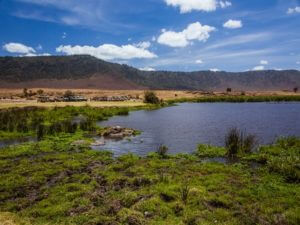
Day 23
Arusha – Bagamoyo, Tanzania
This morning we make an early start, heading south to Bagamoyo via Moshi. If the weather is good, we will catch a glimpse of the incredible snow-capped Mount Kilimanjaro – a dormant volcanic mountain that has gained the title of Africa’s highest peak at 5895m. Our camp for the evening is a short distance from the palm fringed beaches of the Indian Ocean.
Trip Highlights: Glimpses of Mt Kilimanjaro
Accommodation: Fire Fly Camp – Camping in twin share tents with shared facilities
Meals included: Breakfast, Lunch, Dinner
Distance Covered: +/-560 kms
Approximate Driving Time: 11 hours
Day 24
Bagamoyo – Dar es Salaam, Tanzania
Departing from Bagamoyo, we head south to Dar es Salaam, towards the Indian Ocean. Dar es Salaam is the largest and richest city in Tanzania as well as a regionally important economic centre. It is Tanzania’s main port and is a hub for commerce and industry – a hot, humid and lively seaport city peppered with high rises, vibrant markets and Arab-influenced architecture. To most travellers though, Dar es Salaam is the port of call to the more exotic island of Zanzibar and other Archipelago islands. Our camp for the evening will be set up on the beach just outside of the city. We have a chance to take in the gentle sea breezes of the Indian Ocean and to prepare ourselves for our impending trip to Zanzibar.
Trip Highlights: Dar es Salaam, Indian Ocean beach
Accommodation: Kipepeo Beach Resort – Camping in twin share tents with shared facilities
Meals included: Breakfast, Lunch, Dinner
Wi-Fi: Yes
Distance Covered: +/- 60 kms
Approximate Driving Time: 2 – 3 hours
Day 25 - 27
Zanzibar Island
Zanzibar conjures up images of idyllic sandy, palm fringed beaches; romantic winding cobbled alleys and lush tropical forests and you will find all these here along with an interesting history. Zanzibar was the base of 19th century explorers and was once a major trading centre of spices. For centuries Zanzibar has traded with the people of the Arabian Peninsula for many generations, navigating the ocean in simple dhow sailboats relying on the annual trade winds for passage. The Arab influence is evident in the architecture and diverse street stall offerings of the capital, Stone Town. This influence can be seen all along the Eastern coast – the Swahili language is a result of the mixing of Arab and African languages and cultures over many centuries.
Some of the history of Zanzibar is not as romantic. The island was once a staging post for slaves bought from the African interior who were detained before being shipped to Middle Eastern slave owners. The places where these men and women were held can still be seen and even the shortest visit is enough to convey the atrocious conditions they were forced to endure. On a lighter note though Zanzibar is the home of the Zanzibar Colobus Monkey, the Zanzibar Servaline Genet and the possibly extinct Zanzibar Leopard.
Our time spent in Zanzibar is not structured and your time is at leisure. One of the best ways to see Stone Town is on foot, where you can explore the bazaars for old maritime trinkets and cloths. You can also partake in activities such as visiting mosques, palaces, courtyards and alleyways of the old town. Spices such as nutmeg, cinnamon and black pepper are grown in nearby plantations and you are encouraged to take day tours where you are free to have your senses dazzled. If you are the kind of person who leans more toward leisure time spent on the beach, you are always free to enjoy the white sand and sparkling ocean and to simply soak up the sun’s rays. If you are looking for a good swim or dip in the sea, head out to the northern beaches to experience the warm and inviting Indian Ocean at it’s best where you can try your hand at snorkelling and diving, indulge in some tasty, lavish seafood or just relax beneath a coconut palm with a cocktail and a good book in hand.
PLEASE NOTE: As we leave the truck on the mainland, basic tourist class accommodation (B&B) is included in the tour price but for the sake of flexibility other meals are left for your own account. Typically, we spend one night in Stone Town and the next two nights in the north of the island at one of the beaches. Your tour leader will be available to assist if you have any questions or need activities arranged. Please note that some group members may be starting their tour in Dar es Salaam. Both old and new are invited to join in any group outings.
Trip Highlights: Ferry to Zanzibar, Stone Town, Northern beaches, Optional Zanzibar Activities
Accommodation: Mazons’s or similar – twin/triple rooms with en-suite facilities (First Night), Sunset Bungalows or similar – twin/triple rooms with en -suite facilities (Second and Third Night)
Meals included: Breakfast x3
Wi-Fi: Yes
Distance Covered: Ferry crossing
Optional Activities: Spice Tour US$35, Slave Markets US$15, Arabic Fort US$5, Palace Museum US$10, Scuba Diving US$150, Yacht Trip US$120, Snorkelling Safaris from US$40, Massages from US$20
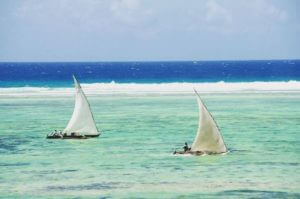
Day 28
Zanzibar – Dar es Salaam, Tanzania
The morning we have time to do any last minute shopping or enjoy one last swim before hopping on the ferry back to the African mainland and Dar es Salaam. From there, it’s onward to our camp on the coast for the evening.
Trip Highlights: Zanzibar, Zanzibar ferry, Indian Ocean beach
Accommodation: Kipepeo Village – Camping in twin share tents with shared facilities
Meals included: Breakfast, Dinner
Wi-Fi: Yes
Distance Covered: Ferry crossing
Day 29
Dar es Salaam – Mikumi National Park Area, Tanzania
Leaving the warm Atlantic coast and bustling city of Dar es Salaam behind, we travel inland through Mikumi National Park. With some luck, we may spot forest elephant or giraffe. Our campsite is located near the park entrance. This evening we enjoy sundowners at the local bar/restaurant and relax around the campfire.
Depending on time this afternoon, there is an optional game drive exploring Mikumi National Park.
Trip Highlights: Tanzania Highlands, Mikumi National Park
Accommodation: Tan-Swiss Lodge – Camping in twin share tents with shared facilities
Meals included: Breakfast, Lunch, Dinner
WIFI: Yes
Distance Covered: +/-290kms
Approximate Driving Time: 4 hours
Optional Activities: Mikumi Game Dive US$150
Day 30
Mikumi – Iringa, Tanzania
After breakfast we head off for Kisolanza Farm at an altitude of 1600m, ensuring a pleasant crisp and fresh climate in one of the most scenic areas the Southern Highlands of Tanzania has to offer. Kisolanza has been home to the Ghaui family for over 70 years and remains a working farm providing organic meat and vegetables to surrounding markets and the city of Dar es Salaam. Kisolanza Farm House is famous for their magnificent hot showers, delectable chocolate brownies, hot chocolate and Amarula that can be purchased at their quaint candlelit bar.
Accommodation: Kisolanza Farm House – Camping in twin share tents with shared facilities
Meals included: Breakfast, Lunch, Dinner
Wi-Fi: Yes
Distance Covered: +/-220kms
Approximate Driving Time: 4 hours
Day 31 - 32
Iringa – Chitimba Beach, Malawi
Following our last night in Tanzania, we head through abundant mountain passes, rich grazing land, and banana and tea plantations towards the Songwe border post and into Malawi.
Formerly ‘Lake Nyasa’, Lake Malawi covers almost an entire fifth of the country’s area and provides the source of livelihood for majority of the Malawi people. Fishermen, fish traders, and canoe and net makers all ply their trades here, and a common sight is that of a fisherman in his Bwato (dugout canoe made from hollowed out tree trunk) fishing on the lake at the break of day. The lake has the highest number of endemic freshwater fish species of any in the world.
You are free to enjoy your time on the beach or shop at a large curio market where you can put your bargaining skills to the test purchasing some of Malawi’s famous ornate and carved chairs or do a full day trip to Manchewe Falls – After a 11km hike, you can cool down in the natural bath.
PLEASE NOTE: The crew may make alterations to the published itinerary. Therefore, please treat the Malawi section of the itinerary as a guideline only.
Trip Highlights: Lake Malawi beach, Curio market, Livingstonia hike option
Accommodation: Chitimba Beach Camp – Camping in twin share tents with shared facilities
Meals included: Breakfast x2, Lunch x2, Dinner x2
Wi-Fi: Yes
Distance Covered: +/-550kms
Approximate Driving Time: 11 hours
Optional Activities: Livingstonia Day Hike US$10
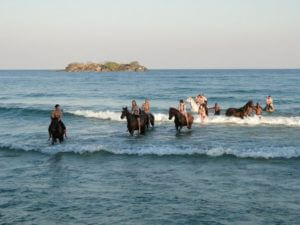
Day 33 - 34
Kande Beach, Malawi
After a peaceful morning, we embark on a scenic drive to Mzuzu, the capital of the northern region and the third largest town in Malawi. We stop for a short while to gather supplies and to take a look at the markets before we arrive in Kande Beach. This leg of the trip allows you the opportunity to meet the locals who are generally known as some of the friendliest people in Africa. Spend the following day participating in some of the water sports available here such as snorkelling, diving, horse riding along the beach or feel free to spend the day relaxing and enjoying the fresh waters of Lake Malawi.
Trip Highlights: Mzuzu, Lake Malawi, Kande Beach, Optional activities, Cultural Interaction
Accommodation: Kande Beach Camp – Camping in twin share tents with shared facilities
Meals included: Breakfast x 2, Lunch x 2, Dinner x 2
Wi-Fi: Yes
Distance Covered: +/-240kms
Approximate Driving Time: 5 hours
Optional Activities: Horse Riding US$55, Village Walk US$10, Snorkelling Day Trip from US$15, Fresh Water Scuba Diving from US$45, Canoe Hire from US$15
Day 35
Kande Beach – Chipata, Zambia
We say goodbye to the beautiful Lake Malawi we cross the boarder as we head for Zambia and Chipata. Formally named Fort Jameson, Chipata has a population of about 98,000 and is the capital of the Eastern Province of Zambia. This unique town offers colourful fruit and vegetable markets and an unexpected amount of ornate temples due to it’s large Indian community. If we have time we will hopefully be able to make a stop in Chipata before arriving at our campsite which is a short distance from the centre of town.
Trip Highlights: Chipata
Accommodation: Mama Rula’s Camp – Camping in twin share tents with shared facilities
Meals included: Breakfast, Lunch & Dinner
Wi-Fi: Yes
Distance Covered: +/-440 kms
Approximate Driving Time: 9 hours
Day 36
Chipata – Lusaka, Zambia
Leaving early, we take the Great Eastern Road through lush country and small villages, crossing the Luangwa River to Zambia’s capital. Lusaka is Southern Africa’s fastest growing city, boasting a population of approximately 1.7 million people and is situated on the southern plateau at an elevation of 1300m with four main highways running north, south, east and west – each to different parts of Africa. Our campsite this evening is set in a tranquil and relaxing area on a farm.
Accommodation: Eureka Camp – Camping twin share tents with shared facilities
Meals included: Breakfast, Lunch, Dinner
Distance Covered: +/-620kms
Approximate Driving Time: 12 hours
Day 37
Lusaka – Livingstone, Zambia
At the start of the day, we head south toward Livingstone and set up camp at the Waterfront campsite located on the banks of the Zambezi River which is just a few kilometres from Victoria Falls. We make a visit to the Victoria Falls and at various times of the year, the spray from this mighty waterfall can be seen from up to 30 kilometres away, hence the local name Mosi oa Tunya meaning ‘the smoke that thunders’. During the excitement of this excursion, try not to forget your raincoat to protect you and your camera from splashes of water.
The camp is incredible and management will provide a brief on all activities in the area (including rafting, canoeing, bungee jumping, abseiling, gorge swinging, horse riding, scenic flights, river cruises, etc.), allowing you to plan your time accordingly over the next four days.
PLEASE NOTE: For the sake of practicality, meals in Livingstone are restricted to breakfasts. This allows you to take on half day or full day activities (some of which include lunch) without having to be back with the group at mealtimes. The Waterfront restaurant overlooks the Zambezi River and offers a good selection of reasonably priced meals and snacks
throughout the day (allow US$15 -$30 per meal). Relax and enjoy these few days at your own leisure. Alternatively, take a taxi or free shuttle into Livingstone and try the local fare.
Trip Highlights: Victoria Falls visit, Zambezi River
Accommodation: Victoria Falls Waterfront – Camping in twin share tents with shared facilities
Meals included: Breakfast
Wi-Fi: Yes
Distance Covered: +/-520kms
Approximate Driving Time: 10 hours
Day 38 - 39
Livingstone, Zambia
During these days you are free to explore the town area to the full. Apart from the long list of adventure activities available, ensure that you take time out to browse through the bustling markets and museum in nearby Livingstone. You could also spend some time here volunteering a day for a local charity project, adventuring on a day trip to the Victoria Falls township in Zimbabwe, or simply unwinding on the gorgeous campsite deck while watching the water of the Zambezi River flow swiftly past on its way through to Victoria Falls.
The following day we enjoy breakfast before the tour comes to an end. We recommend spending an extra day to participate in the variety of activities available on offer here.
Trip Highlights: Optional activities galore!
Accommodation: The Victoria Falls Waterfront – Camping in twin share tents with shared facilities
Meals included: Breakfast x 2
Optional Activities: Bungee jumping US$160, Full day abseil US$190, Mosi Oa Tunya National Park Game Walk US$110, Chief Mikumi village tour US$50, Gorge swing US$95, Zambezi jet boat and cable car US$215, Half day canoe US$115, Zambezi sunset cruise US$70, Full day white water rafting US$180, Helicopter/ Microlight flights From US$195, Half day fishing US$145, Bridge Tour US$65.
Onward Travel Plans
Due to circumstances beyond our control while on tour (such as border crossings, traffic, breakdowns and delays, etc), the end time on the last day cannot be guaranteed. Therefore we strongly recommend you stay the night and fly out the next day. Please consult with your booking consultant.
Pre Departure
Pre-Departure Meeting
- Pre-departure meetings are usually held the evening before the tour starts.
- Most overland tours begin in Nairobi, Kampala, Dar es salaam, Livingstone, Victoria Falls, Windhoek, Swakopmund, Cape Town or Johannesburg and held on the evening prior to the safari departure date at 6pm.
Zanzibar Excursion
- If Zanzibar is included in your tour, you will enjoy an excursion to the Zanzibar Island which includes a ferry ride for about approximately 2 hours
- The overland vehicle remains in Dar es salaam while you explore the island.
- Your accommodation on the island is included on the Adventure Pass, but not the meals (Lunch and Dinner)
- More information on the tour will be given while on tour
- You will only need a backpack for your excursion to the island (Your main back pack will be left at the truck).
- A list of items to pack for your excursion are the following:
- Passport (the island considers itself ‘apart’ and you must carry your passport when entering and leaving)
- Yellow Fever Certificate (Compulsory!)
- Change of clothes in your day pack, swimsuit, sun screen, hat, small first aid kit and towel, anti-malarials
- Money : * US$ 10 – $25 per day (other meals)
- US$ 75 – 150 (drinks, curious, local tours, etc)
Important Touring Tips:
- The itinerary is a guide ONLY and is subject to change
- There is a mix of different nationalities, ages and cultures on every tour
- Space in the truck is limited – PLEASE DON’T BRING TOO MUCH LUGGAGE!
- The tours are high adventure tours, so don’t expect European Coach tours or lodge safaris
- The tours are often created in a circular route i.e. where one tour ends, another begins
- The rate is the same throughout the year
- All meals are served from the truck unless specified otherwise
- Should you be travelling to Kenya. The Kenya government has instituted a Zero Tolerance on usage of All Plastic Bags. On the spot fines (400 USD) are being issued.
What are adventure tours?
These are adventure tours perfect for people who enjoy camping and the outdoors. You get to experience the “real Africa” by camping out at night, sitting around the campfire, taking in beautiful scenery, visiting local shops and getting to know the locals.
What is a typical day?
A typical day on either your camping or accommodated Africa overland tour starts with an early morning wake-up call and a cup of tea or coffee followed by breakfast. Campers pack-up their campsite while comfort travellers check-out of their accommodation and hit the road.
We set off to our next destination travelling through a vast variety of landscapes, making our own new memories with new friends. Each day in Africa offers a new experience from an early morning sunrise hike, quad biking, sky dive or guided nature walk. The options are endless!
We have shorter travel days arriving at our campsite by midday or early afternoon, to enjoy lunch before joining our afternoon activity or simply enjoying a relaxed afternoon at your own pace.
On our longer travel days an early start ensures an earlier arrival at our campsite. We stop off at scenic spots to stretch our legs and take in the scenery, before lunch is enjoyed at a shady spot en-route. A mid- to-late afternoon arrival at our campsite allows us to set up camp, enjoy a beautiful sunset and end the day sitting around the campfire, under the stars.
Our best advice: expect the unexpected as this is Africa! We travel mainly on gravel roads and poorly kept tarmac roads – both setting the pace at which we travel. We do our best to arrive at our next destination, safety is our number one priority and while our overland vehicles are comfortable and spacious, they are not sports cars!
What type of vehicles do we use?
- A custom-built, comfortable, safe and self-sufficient Africa overland truck to withstand the rugged African terrain.
- Various vehicles are used on varying tours, with each offering comfortable seats with ample leg room.
- Each vehicle has large glass windows for uninterrupted views and perfect for game drives.
- Smaller 4×4 land cruiser type vehicles are used for game viewing in the Serengeti and Ngorongoro Crater, due to the roads being tougher and too narrow for the overland trucks.
- Each overland vehicle includes a passenger safe to safely keep money + passports + flight tickets + credit cards. The keys are kept with your Tour Leader who will advise of safety requirements in place concerning the safe.Who is suited to go on an adventure tour?
- Almost anyone can go on an adventure.
- Some level of fitness is required due to accessing the vehicle and spending long days on bumpy roads (can take it out of you).
EAST AFRICA TOURS require a more adventurous, fearless attitude and are suited to a younger traveller.
If you are planning to trek with the Mountain Gorillas or climbing Mount Killi you will need to have a higher fitness level.
WHAT TO EXPECT ON A CAMPING OR ACCOMMODATED TOUR
Camping Tours:
A camping safari is for travellers who want a hands-on experience of Mother Nature. The guide(s) will do most of the work, but you will be required to assist with various tasks such as preparing the food, washing up, cleaning out the truck and setting up the campsite and your tent. If you dream of a lifetime African adventure, embark on a journey with us sleeping under the stars while listening to the sounds of wildlife in the distance.
We offer camping safaris suited to travellers who may prefer to travel in a younger group (aged 18 to 39). Or, you can choose a mixed age group (18 to 60). A camping safari must not be underestimated and will require active participation which means good health and a fair degree of fitness. We have a tour to suit what you have in mind, so please do not hesitate to enquire with us.
During an African camping safari you will stay in large two-man dome canvas tents which are spacious enough for two adults and your luggage. Or, you can opt to have your own tent by including the single supplement (valid on select camping tours).
Your tents are put up and taken down easily – your Tour Leader will show you exactly how to do this and help out when you are unsure. All tents are well-ventilated by means of a tent-door and window, covered with mosquito net. They also include a fly-sheet for the rain.
Most camping safaris include a sleeping mat (please do check with us upon enquiry). You need to bring your own sleeping bag, pillow and towel. All meals are prepared at the truck and you will be required to assist with the preparation.
The African campsites are basic and comfortable and you will be able to upgrade your accommodation at most of the places, but this is subject to availability. Most have warm showers and flushing ablutions, while others may have natural ablutions. Some places visited are bush camps where there are no facilities.
Accommodated Tours:
Accommodated safaris are ideal for travellers who prefer to experience African wildlife and adventure with extra comforts. You are surrounded by vast landscapes and wildlife, curiously roaming at your door-step. It is comfort, without the price tag!
Our accommodated safaris make use of a combination of lodges, hostels, bungalows, chalets, permanent safari camps, hotels and traditional huts. Our properties are ideally located at each destination for an authentic experience with incredible views.
We book Twin rooms if you are travelling with a partner or friend and Single rooms for single travellers (including single supplement). Most of the time we stay in 1-3 star properties with en-suite bathrooms in Southern Africa. In Eastern Africa we offer a combination of en-suite and shared bathrooms. In the case of shared bathrooms, you will be sharing with friends on your tour. Please bring your own towels as these are not always provided.
Select accommodated safaris include a camp assistant to help out with the smaller aspects of your vacation.
The standard of the properties varies along the trip. The Southern Africa properties are much more established than the East Africa accommodation. They vary from basic (but comfortable) to lovely properties. Due to the remote nature of the trips, accommodation choices are limited.
Distances and Road Conditions:
Our tours cover long distances so you can see significant amounts of Africa this means that there will be long days spent on the road often with nothing to look at except vast open plains. You can spend between 350km and 650km a day in the truck so it is important to be prepared.
What will you eat on safari?
Our Africa overland vehicles are fully stocked with dry goods at the start of each tour. We buy fresh produce (fruit and vegetables) almost daily to ensure fresh, good quality and tasty meals. Over the summer months fresh produce is not always available due to the heat and humidity, especially in East Africa and Mozambique – so we may have to skip tomatoes from lunch or opt for rice instead of potatoes at dinner.
Each Africa overland camping and accommodated tour include meals as per the itinerary. Often, we may only include breakfast and lunch, allowing you to enjoy dinner at a local market or restaurant. Drinks such as tea, coffee and fruit juice is included with every meal, but exclude bottle water, beer, soft drinks, alcohol etc. – these can be bought en-route or at your campsite bar.
We do cater for most dietary requirements (allergies, vegetarian, lactose-intolerant). Other requirements (gluten-free) may be more challenging on remote routes (i.e. East Africa) where starch is a stable-food in Africa. Please do speak to us about your dietary requirements and we will advise according to your trip. You will be amazed by the variety of tasty meals prepared on an open-fire!
Almost all your meals are pre-prepared over an open campfire or on the gas stove in your overland vehicle. All cooking equipment such as pots, pans, cutlery and crockery is included for you. Excellent hygiene standards are maintained at all times preparing food and washing up of kitchen equipment. Your guides will provide you with a separate washing up basin to wash hands in warm soapy water before and after each meal.
Our camping tours are limited participation tours, whereby we ask you to help out with daily chores (putting up / taking down tents) and help out your guides at meal times (rinsing, chopping vegetables).
So what are the meals like on tour? We have included a few meal options as a guideline:
Breakfast:
Tea/coffee and juice + cereals + bread/toast + fruit. Take 2 fruits and keep one for a mid-morning snack. An occasional cooked breakfast (bacon, pancakes, eggs) is made when you have more time to allow for this (normally when you spend 2 nights at the same destination).
Lunch:
Juice + bread + cheese + cold meats + salads + fruit (make a sandwich for a mid-afternoon snack)
Juice + fresh rolls + green salad (or rice salad or pasta salad) + fruit.
Dinner:
Tea/coffee and juice + chicken curry + rice, grilled or roast chicken + salad + garlic roll, grilled chicken + vegetables + salad, fish braai + salad, steak + veggies, pasta, stir-fry + rice, casserole, braai (barbeque) + salads + jacket potatoes, soup + fresh rolls.
Drinks
Tea, coffee and cordial drinks are supplied with meals but other cooldrinks and alcohol can be purchased along the way.
What about children on tour?
- Due to the nature of overland tours the minimum age limit is 18. Younger travellers (10 to 17) travelling with a parent(s) will be considered on a case-by-case basis depending on the tour, time of travel and tour availability. We do have select tours offering Family Departures, suited for children aged 10 to 17.
- Privately arranged charter tours’ age limits will be assessed based on the route and type of tour you choose.
- Please bear in mind that the Gorilla Trekking tours have a minimum age limit of 16 years.
Packing for your tour:
Packing sensibly is essential for your Africa Overland trip. One backpack and one daypack are needed and these can weigh no more than 25kg. A duffel bag is preferable as it will fit into the lockers on the truck, but you can also take a backpack with a compact, flexible, soft shell (without a hard frame). Please do not take suitcases. The airlines implement a 20kg per person limit on international flights for your luggage (your main bag) and a further 5 kg for carry-on luggage (your day bag). A good idea is to include a spare bag for curios that you may purchase, but don’t forget to include this in your weight for your trip home. A moneybelt is a useful item for keeping your money safe and hidden.
Take along comfortable, casual and semi-casual “wash & wear” clothes. Cotton is a good material for when it is hot, and fleece for when it gets cold. Pack clothes that don’t crease easily as the laundry facilities are limited. Find clothes that can be mixed and matched easily and are colour co-ordinated. A great item of clothing is zip-off pants. These double-up as shorts or trousers and are useful for when the weather changes. Reversible clothes are also very convenient and will help to reduce space in your bag.
Clothes:
- 3-4 short sleeved shirts or T-shirts
- 2 pairs of trousers or 1 pair and 1 skirt – try not to pack jeans as they take a long time to dry
- ¾ pants
- Warm sweater or fleece top
- 1-2 pairs of shorts
- Tracksuit pants
- Light sweater or sweatshirt (can also be used as an additional pillow)
- Warm fleece top
- Underwear and socks
- Hat/peak cap/bandana
- Gloves
- Scarves
- Water/wind-proof jacket
- Boots or sturdy trainers
Beachwear:
- Swimsuit
- Sunglasses
- Beach towel and/or sarong
- Sandals or thongs (need to be waterproof if you want to go white-water rafting)
Toiletries:
- Personal toiletries
- No electric shavers
- Hand sanitiser/wipes (waterless sanitisers are convenient)
- Baby wipes/wet wipes
- Tissues
- Moisturiser
- Face wash
- Facecloth
Sleepwear:
- Pyjamas
- Travel pillow
- Spare pillowcase
- Sleeping Bag
- Fleece blanket
Medication/first aid kit:
- Prescription medication
- Anti-histamine cream or tablets
- Antiseptic cream
- Sunscreen (high factor) and lip balm
- Water purifying tablets
- Pain killers
- Eye drops
- Diarrhoea medication
- Moisturiser
- Dehydration salts
- Elastoplasts/band aids
- Insect repellent (Malaria is a big problem in Africa, so the more protection the better)
- Sterile dressings
Extras:
- Water bottle
- Book (you can swap with the rest of the group)
- Extra memory/film for your camera (remember to set at the highest resolution as you might want to enlarge the pictures)
- Head torch
- Pens
- Zip-lock bags (medium sized for cameras, snacks, trash etc.)
- Extra batteries
- Travel power strip ( a compact three-plug unit that includes two USB connections. With just one wall plug you can charge five gadgets) Buy on Amazon and will help to reduce space in your bag.
- Penknife
- Watch
- Biodegradable laundry detergent
- Vaccination certificates for some areas
- Cash
- Small scrubbing brush
- A padlock for your luggage locker in the truck
- The power plugs in SA have 3 round pins. East Africa has British power plugs.
Laundry:
- There will be washing facilities at most campsites which you can make use of.
- Please remember to bring some environmentally friendly washing
- We suggest you take along crease-free clothing as the facilities available for ironing are limited
Safety on Game Drives:
- When on safari be as quiet as possible at all times and don’t make any sudden movements, this will ensure you don’t disturb the animals and get the most out of your game drive.
- Do not jump off the truck at any time.
Accommodation (Pre Tour):
- It is highly recommended to arrive a day before your tour starts so that you do not miss out on the pre departure meetings as it covers important information you need to know for your trip.
- It is strongly advised that you arrive a day before the tour starts.
- We do advise letting us know as soon as possible in order for us to make the best hotel reservation for you.
- Post accommodation can be very easily arranged.
Personal Health:
- Ensure that the guides know of your medical conditions!!!
- Let them know how you are feeling.
- AIDS is an enormous problem in Africa so please be careful and practical, condoms are cheap and freely available.
- A First Aid Kit is available on the truck for any emergencies.
Vaccinations:
- Please ensure you seek medical advice from your travel doctor before visiting Africa.
- You should consult your travel doctor or travel clinic for the latest requirements for Hepatitus A (Havrax), Yellow Fever, Tetanus Booster Shot, Rabies
- If you are entering a Yellow Fever infected area, you will be required to have a vaccination which can be done at Travel Clinics.
- Obtain an international Certificate of Vaccination with a valid stamp.
- Yellow Fever – Valid for 10 years and mandatory for most African countries. It is compulsory to produce a yellow fever certificate when entering Kenya, Zanzibar and Malawi and for taking part in the Gorilla Trek. Failure to present this may result in entry being refused.
- We also recommend that you ask your doctor about: Typhoid, Tetanus, Hepatitus, Meningitis, Polio, Hepatitus A&B, Cholera
- Tents have mosquito nets in the vents and it is not generally necessary to bring a separate mosquito net unless you plan to sleep outside, under the stars(in which case you are recommended to bring one)
Malaria:
- Malaria is transmitted by mosquitoes and is more prevalent in areas where there are high concentrations.
- Malaria is a serious problem in Africa, but if you are cautious and use mosquito repellent and take your malaria tablets you will be safe.
- Main points to keep in mind about malaria:
o Cover your skin with long shirts, pants and socks as most mosquito bites occur below the knee.
o Make sure your mosquito net is tightly closed and doesn’t have any holes in it.
o Use an effective prophylactic and speak to your doctor about options for anti-malarial tablets
o Always cover yourself with mosquito repellent, especially at sunset.
o Please know that malaria cannot be cured!
Water:
- Dehydration is a common ailment on tour.
- You should be drinking a minimum of 2 litres of water per day
- It is preferable to drinking bottled water to avoid diarrhoea, but your guide will advise you as to whether you can drink the water or not.
How others can reach you:
- The easiest option to keep in touch with your loved ones at home is to buy a SIM card of the respective country you are travelling in.
Photography:
- You are not permitted to take photographs at the border crossing, government buildings and military institutions.
- No photographs of the army, police are allowed.
- Some tribes do not allow their pictures to be taken so please ask your guides before photographing whether it is permissible or not.
- A fee may have to be paid for photographing the local people.
Crew and Guides
Tour Crew:
Your tour crew are people with a heart of gold and love living in Africa! With an in-depth knowledge of the local culture, history and wildlife, your crew are committed to ensuring a memorable African overland tour, 24/7.
- Most overland tours include two crew members (Driver and Tour Leader) working as a team managing tour finances, planning activities, preparing meals and ensure you safely experience Africa.
- Our larger group overland tours (maximum 26 to 30) include a third crew member (Camp Assistant or Cook or Translator – tour depending).
- A pre-departure meeting is held the day before your tour, where tour crew will brief you on the nature of your tour and what to expect. At this point they would also collect any local payments needed for your tour.
- We have select shorter small group tours including one crew member, responsible for driving and tour management. It is perfect for an exclusive, personalised African experience.
The Guides:
- All overland guides and crew undergo extensive training courses, lectures and field instruction on an on-going basis. Specialised guides are contracted for special interest tours (including school and University group tours) or language tours (Spanish and German) or private overland tours (on request).
- Although overland guides are trained and qualified, remember they are still human. The nature of their work and duration of overland tours, places an enormous demand on them and can be taxing at times. Please treat them with respect and enjoy getting to know them. They are great people!
Climate and Weather Conditions:
- The weather in Africa can be unpredictable and extreme so be prepared for this.
- You can find out the type of weather to expect on your tour from your consultant.
- Always wear sunscreen from October to April.
- Temperatures can drop to below zero from June to September.
- It does rain in Africa!
Street Vendors:
- Like with any 3rd world country you will encounter informal vendors offering you better rates than the banks. We suggest you don’t work with them for security reasons.
- Please do not display your foreign currency in public.
Passport:
- A valid passport is required for all international travel.
- Having all the necessary documentation for your trip is your own responsibility therefore you need to find out by your travel agent what the essential documents for the trip are in order to avoid any complications on tour.
- Passports must be valid for at least 6 months after returning from your trip.
- In certain cases foreign passport holders require entry, re-entry or departure permits and/or visas to enter a country.
- Have enough pages for all visas, at least 2 pages free for every country visiting – the Border Security is strict with this rule
- A copy of your passport should be given to your guides for safety reasons.
- Must be valid for 6 months after the date of departure from Africa.
- Avoid using more than one passport to avoid visa payments when travelling
Visa:
- Please note that visas are the responsibility of the traveller and African Overland Tours will not be held responsible for the traveller being denied entry should they not be in the possession of the relevant visas.
- Ensure you have a valid onward/return ticket to leave the country when the tour ends, otherwise you need sufficient funds in your bank account.
- Visiting the Okavango Delta, you may need a double entry visa for Namibia and or Botswana
- Botswana Tourism Levy: As of 1 June 2017, Botswana has implemented a tourism levy of US$ 30 per person to be paid in US Dollars cash once you enter.
Insurance
Medical Insurance:
- Compulsory! No one will be allowed on a trip if you don’t have this. It is for your safety should anything happen while on tour (especially when in a remote location).
Travel Insurance:
- It is compulsory to have comprehensive adventure travel insurance, on all overland tours. We require your travel insurance details upon booking your vacation, to include on the passenger list.
- Most travel insurance policies do not include cover for adrenaline sports and adventure activities. These include white-water rafting, sky diving and bungee jumping. So double check your policy inclusions.
- WorldNomads Insurance offer adventure travel insurance and, most importantly, cancellation insurance. We strongly recommend your travel insurance includes cancellation and curtailment insurance. The majority of tour departures are guaranteed (confirmed to depart) but in the unlikely event of a tour departure being cancelled, you would be protected.
- In the case of credit card insurance, we recommend you check the fine print to ensure you have adequate cover as credit card companies offer a standard option. Sometimes, just for a simple problem, you may have to be airlifted to South Africa as many public hospitals in Africa are below western standards.
- If you choose to use your credit card insurance, you will need to call your bank to obtain your policy details. This is how:
• Phone your bank
• Give them your Bank Card Number
• They will ask you to verify your account
• Then you need to ask for the insurance company name
• Then you need to ask for the policy number
• Remember to keep the telephone number you dialled
Single Supplements:
A single supplement is an additional charge you will pay for your own room. Single supplements are optional on camping tours, but compulsory on accommodated tours if you are a single traveller. Single supplements do not cover Activity Packages.
Optional Activities:
Optional activities are not included in the tour price because not everybody wishes to do them. Sometimes the activities are not available due to time, season or weather conditions
What is a Local Payment?
- A number of adventure overland tours are made up of a Tour Price + Local Payment.
- The Tour Price is pre-paid to secure your tour seat and include operational costs associated with each tour, such as; guide salaries, fuel, vehicle servicing, maintenance, road tolls and taxes.
- The Local Payment is a portion of your overall tour cost paid on the morning of tour departure, in either US Dollars cash or ZA Rand cash (tour depending). It includes “on tour” expenses which cannot ordinarily be pre-paid such as: food, camping, national park entry, included activities.
Activity Package:
- A selection of tours are made up of a Tour Price + Optional Activity Package.
- The Tour Price is pre-paid to secure your tour seat and include operational costs associated with each tour, such as; food, camping (or accommodation), national park fees, guide salaries, fuel, vehicle servicing, maintenance, road tolls and taxes.
- The Optional Activity Package combine the popular activities available on the tour, giving you the option to pre-pay this package (and so carry less cash while travelling) or; you can pay it on the morning of departure to your Tour Guide in ZA Rand cash.
- Activity packages are optional 98% of the time and covers what we consider to be ‘essential activities’ on the tours.
- It is more convenient to pay these upon your arrival or on the first day of the tour.
- If you do not pre-book a particular activity it may not be available and you may be disappointed.
Money Matters:
- Your spending money, visas and optional activities needs to consist of a combination of Cash and Traveller Cheques in the currency quoted (tour specific). Credit cards are only accepted at some places (mostly larger cities) and throughout South Africa.
- Visas are not accepted in East Africa.
- In Southern and East Africa, additional credit card surcharges from 5% to 8% may be charged when using your card. It is best to use it only in case of emergency.
- US Dollars, GB Sterling, Euro and select international currencies are used within Africa, with US Dollar being the most popular. You will find food, taxi, accommodation and optional activity prices are all quoted in US Dollars.
- US Dollars cash notes must be issued POST 2005. No notes pre-dated are accepted due to fraudulent notes rife in East Africa. You can pre-order US Cash notes from your local bank or foreign exchange office prior to arriving in Africa.
- It is best to bring a combination of larger denominations (USD100 and USD50) to pay for your Local Payment and smaller denominations (USD50, UDS20, USD 10 and USD5) for spending money, visas and optional activities.
- ATMs are found throughout South Africa and other major towns and cities through Africa. However, you may not have access to an ATM for a few days, or they may be out of order. Please note that when drawing money from a local ATM, you will receive local currency.
- ZAR is mostly used in South Africa and Namibia. We recommend USD for Botswana, Mozambique, Livingstone and Victoria Falls area.
Credit Cards:
- Most of the major Southern and East African cities do have credit card facilities available however they may charge you a surcharge to use the facility.
- Visa and Mastercard are the two most widely used accepted credit cards in Africa, while diners or American Express may not always be accepted
Banking facilities:
- There are full banking facilities in the major towns based on weekly business hours. Here you can change money and withdraw cash from a credit card. Visa and Master Card are preferential, as other cards may not be widely accepted.
Departure Tax:
- Various countries require you to pay an Airport Departure Tax when departing on an international flight.
- Varies from US$10 – US$60 depending on the departure time
Security:
- The truck has a safe for passports, money, credit cards and flight tickets only!
- Keep your cameras, cell phones, iPad’s and other digital equipment close to you at all times (preferably in your day pack) as the operator will not be held responsible for anything that goes missing.
- Leave your valuables at home!
- Be vigilant and cautious at all times.
- Always walk in a group, especially at night.
- It is advisable to have travel insurance for your personal items.
Quality and Protection:
- We are proudly bonded SATSA members. Our membership number is 1712.
- We are also insured by SATIB.
- SATSA is the Southern Africa Tourism Services Association and offers protection to international travellers against the possible loss of deposits (or monies paid) to a SATSA member (tour operator, car rental company, accommodation provider etc.), in case of liquidation. It is underwritten by Lombard Insurance and Lloyds of London.
- SATSA is the driving force behind improving standards of tourism in South Africa, as offered by its various members (tour operators, car rental companies, accommodation provider etc.).
- “Should a SATSA member who is a South African tourism business operation, run into financial problems, the bonding scheme allows the client to claim back their deposit without having to prove in a court or to the liquidator whom or what was paid, but simply to produce the relevant documentation to SATSA.” – Michael Tatalias, CEO SATSA.
- Satsa Bonding Offers financial protection on all monies paid.
Quick Checklist
- Make sure your vaccination requirements have been done at least 4 weeks prior to your tour
- Remember to make sure your VISA is valid for you to go on tour
- Remember to reconfirm your flights. Airlines vary in their requirements but we suggest you reconfirm 48 – 72 hours before your departure homebound
- Remember to take your passport, vaccination certificate and flight tickets with you ( a photocopy of these is a good idea)
- Remember to take a copy of your insurance policy with you
- Remember to take your travel voucher to give to your crew at your pre-departure meeting
- Remember to take your Adventure Pass in US $ cash (unless pre-paid)
Checklist
- Make sure your vaccination requirements have been done at least 4 weeks prior to your tour
- Remember to make sure your VISA is valid for you to go on tour
- Remember to reconfirm your flights. Airlines vary in their requirements but we suggest you reconfirm 48 – 72 hours before your departure homebound
- Remember to take your passport, vaccination certificate and flights tickets with you ( a photocopy of these is a good idea)
- Remember to take a copy of your insurance policy with you
- Remember to take your travel voucher to give to your crew at your pre-departure meeting
- Remember to take your Adventure Pass in US $ cash (unless pre-paid)
FROM
R134,190
